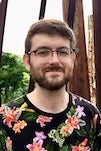- Growing up in a tiny Wisconsin town, reporter Jake Spring craved adventure. Years later, that adventurous spirit would take him around the globe as a foreign correspondent for Reuters.
Biography
Growing up in a tiny Wisconsin town of 5,000 people, environment reporter Jake Spring craved adventure. Years later, that adventurous spirit would take him around the globe from China to the Brazilian rainforest as a foreign correspondent for Reuters.
A stint at his high school newspaper sparked Spring’s interest in journalism, which continued in college. “I first realized that journalism could be a real career option when I studied abroad in China during my junior year,” says Spring, who interned at a magazine in Beijing during the 2008 Olympics. “I met foreign correspondents and it suddenly became a much more tangible career choice.”
Spring obtained a BA degree in Asian and Middle Eastern studies from Northwestern University and eventually landed a job with Reuters covering the Chinese economy and the automotive industry. “It was a great time to report in China because this is where the lion’s share of the electric car boom was starting,” he says.
Spring’s focus turned to Brasilia, Brazil, in 2017, when he seized an opportunity to cover commodities in the South American country. “Since then, my interest in the Amazon rainforest has gotten stronger, especially in 2019 when wildfires in this ecosystem hit their peak,” he says. “This altered the direction and focus of my reporting.”
Spring dove into stories about illegal deforestation in the Amazon, the Brazilian government’s weakening of environmental protection policies, and the effects on climate change. The Amazon, which spans nine countries, is the world’s largest rainforest. Researchers have warned that protecting the Amazon is crucial to addressing climate change because of the forest ecosystems’ complex interactions with global climate. “I thought that the events I was reporting on in China were some of the biggest stories possible, but there is no bigger story globally than climate change,” he says. “If we let the Amazon burn or get cut down, we will be killing ourselves.”
Seeking a stronger foundation in science, Spring attended Metcalf Institute’s 2020 Annual Science Immersion Workshop for Journalists as drought-fueled fires continued to ravage the Amazon’s ecosystem. The workshop explored the ways that a 2-degree Celsius increase in global average temperatures will affect ocean and terrestrial ecosystems, the frequency of extreme weather around the globe, and human health. Importantly, the workshop also helps journalists build confidence in reporting on scientific uncertainty and translating scientific research for news audiences.
“Thanks to Metcalf, I am now writing more science-based stories about the Amazon and feel more comfortable approaching scientific studies that sometimes seem intimidating or difficult,” he says.
Those stories include a powerful piece about the fate of animals in the path of destructive fires in the Brazilian Pantanal, the world’s largest wetland and one of the most biodiverse ecosystems on the planet.
Spring hopes his stories reach a wide audience, inspire people to act “and ultimately influence the environmental agenda in Brazil,” says Spring. Looking to the future, he plans to write more solution-oriented stories about efforts to create a sustainable economy in Amazon and restore the forest. “All of my traveling has encouraged me to think about the world as a whole, driving home that climate change is an important topic that people need more direct information about.”

